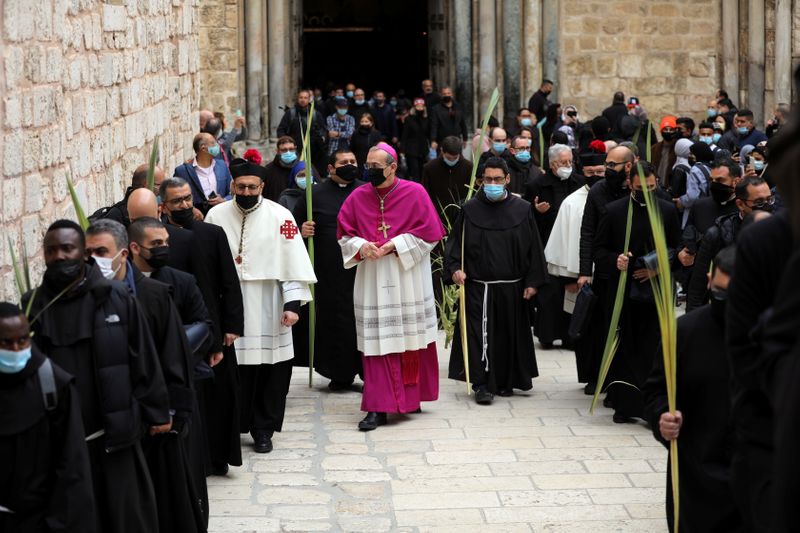By Stephen Farrell
JERUSALEM (Reuters) - In scenes very different from last year, Jerusalem's Church of the Holy Sepulchre opened to the public on Palm Sunday, allowing Christians to attend mass at the start of Holy Week on the site where they believe Jesus was crucified and rose from the dead.
With more than half the population of Israel having received two vaccine doses, coronavirus restrictions were eased to allow small congregations to gather with social distancing measures in place.
The mood was celebratory as scores of Roman Catholics passed through the huge wooden doors of the church that is the global focus of the most important festival in the Christian calendar.
"Last year was a terrible Easter, without people, closed doors. This year is much better, the door is open, we don't have a lot of people but we feel more hopeful that things will become better," the Latin Patriarch of Jerusalem, Pierbattista Pizzaballa, told Reuters as he emerged from the church flanked by clerics and worshippers carrying palm fronds.
"The message of Easter is life and love, despite all the signs of death, corona, pandemic, whatever, we believe in the power of love and life," Pizzaballa said.
Under Israeli COVID-19 restrictions on gatherings, the patriarch later led worshippers wearing face masks and holding palm and olive branches in a Palm Sunday procession from the Mount of Olives to the Old City.
Palm Sunday commemorates the day the gospels say Jesus rode into Jerusalem and was hailed by the people, only to be crucified five days later.

This year, Roman Catholics celebrate Easter on April 4 and Orthodox Christians nearly a month later, on May 2.